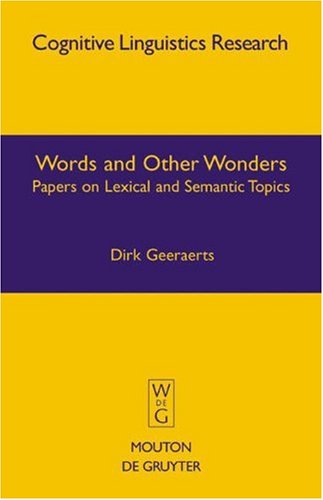

Most ebook files are in PDF format, so you can easily read them using various software such as Foxit Reader or directly on the Google Chrome browser.
Some ebook files are released by publishers in other formats such as .awz, .mobi, .epub, .fb2, etc. You may need to install specific software to read these formats on mobile/PC, such as Calibre.
Please read the tutorial at this link: https://ebookbell.com/faq
We offer FREE conversion to the popular formats you request; however, this may take some time. Therefore, right after payment, please email us, and we will try to provide the service as quickly as possible.
For some exceptional file formats or broken links (if any), please refrain from opening any disputes. Instead, email us first, and we will try to assist within a maximum of 6 hours.
EbookBell Team

5.0
98 reviewsThe papers are grouped in thematic sections. The first section deals with prototypicality as a theoretical and practical model of semantic description. The second section discusses polysemy and criteria for distinguishing between meanings. The third section tackles questions of meaning description beyond the level of words, on the level of idioms and constructions. The following section casts the net even wider, dealing with the cultural aspects of meaning. Moving away from the theoretical and descriptive perspective towards applied concerns, the fifth section looks at lexicography from the point of view of Cognitive Linguistics. The final section has a metatheoretical orientation: it discusses the history and methodology of lexical semantics.
Each paper is preceded by a newly written introduction that situates the text against the period in which it was first published, but that also points to further developments, in the author's own research or in Cognitive Linguistics at large. The variety of topics dealt with make this book an excellent introduction to the broad field of lexicological and lexical semantic research.